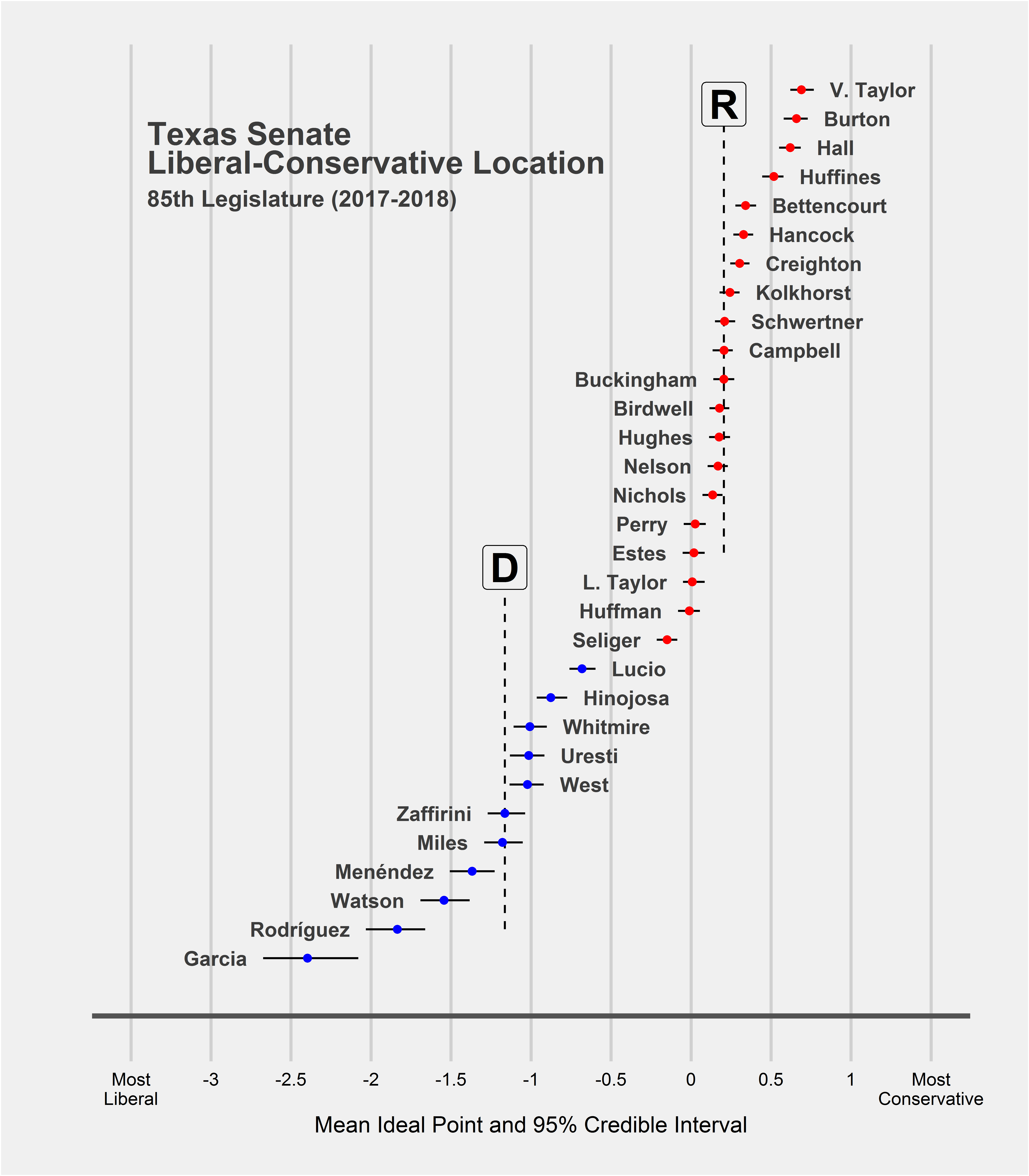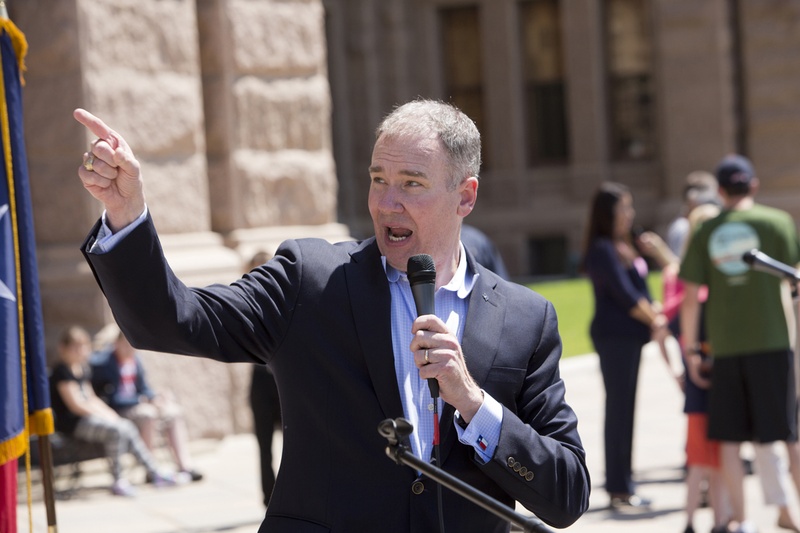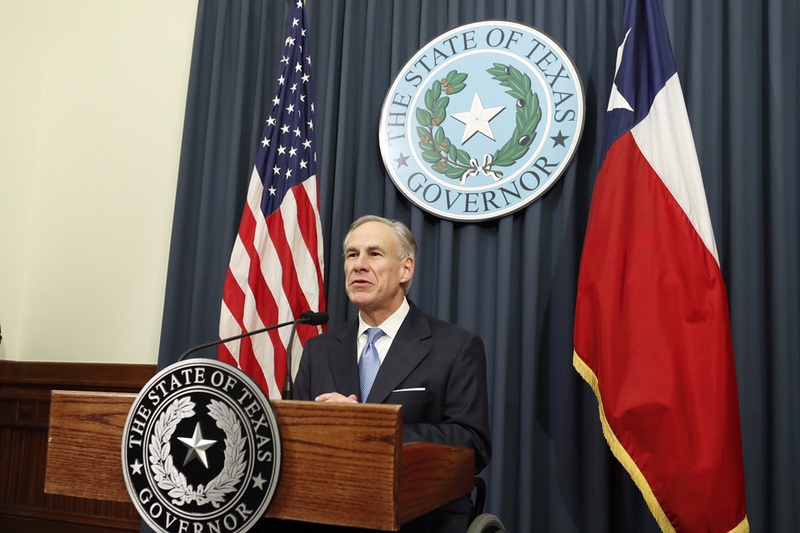"Therefore by their fruits you will know them."
Matthew 7:20
[
Note: Our assessment of the 84th can be viewed here.]
It's that time of the political cycle! The regular session of the 85th Texas Legislature is over. How'd they do?!?
Border Security: B -- They passed the Sanctuary cities bill and maintained border security funding in the budget; if border security is one of your top issues, you can't deny that they made tangible progress on this issue this session.
But we've
publicly stated doubts about whether the approach behind the sanctuary cities bill will ultimately accomplish it's stated objective, and we've found the discussion to be very theatrical.
In other words, they notched a couple of first downs but missed other opportunities to reach the end zone.
Pro-Life: B -- The top
realistically achievable pro-life priority, the dismemberment abortion ban, was
successful. In addition, we had a couple of pro-life victories in the budget. But we'll repeat
what we said two years ago: "The only reason meaningful pro-Life legislation passed this session was the dogged and indefatigable work of Texas Right to Life."
Unfortunately, for no reason besides political spite, House leadership
killed efforts to eliminate abortion subsidies in the health insurance market and to prohibit involuntary due not resuscitate orders in hospitals.
Finally, while it had
no realistic path to 76 votes, for Byron Cook to
kill the abolition bill without a hearing speaks for itself.
Austin Bashing: C -- The Uber bill
crossed the finish line. On housing issues, they lost
linkage fees. And it's not a secret that a number of local politicians have cynically grandstanded over sanctuary cities.
But the overwhelming majority of bills to reign in the City of Austin's abusive practices died in House committees chaired by Democrats. Pro-property rights bills related
to historical zoning and
short term rentals died in Carol Alvarado's Urban Affairs committee, while bills to stop
micromanaging hiring practices and
pre-empt tree cutting ordinances were slow walked in Rene Olivera's Business and Industry committee. Alvarado and Olivera killed several other bills without hearings. It's worth noting that
none of Paul Workman's Austin bashing bills were successful.
Finally, an attempt to prohibit
other forms of housing price controls died late
in the Senate.
Religious Liberty: C --
Conscience protections for adoption service providers successfully passed and that's a pretty big deal. In addition, efforts
to reign in some of
the most abusive actions we saw in the 2014/15 Houston saga were successful. Both of those are fairly substantial victories.
But
any number of other religious liberty bills died in the House.
It wasn't terrible, but it was underwhelming.
Higher Education: D [
Note: Senate C, House F] -- The good news: The Senate passed strong bills on
tuition and
free speech. Unfortunately, both predictably died in the House. Nevertheless, those Senate bills are a solid foundation from which to build in future sessions.
The bad news: In the one place where the Senate had leverage and the House was irrelevant...
the Senate rubber stamped the damn regent nominees. Thus, we expect the higher ed. status quo to continue in the short term. In addition, the Senate caved and
increased higher ed. funding in the budget.
The only reason we're giving them a passing grade is because
UT had to back down on the Houston land grab.
Ethics: D [
Note: Senate A, House D] -- The first bill the Senate
unanimously passed was
an ethics bill that would have accomplished the following objectives: "barring politicians convicted of a felony from holding office or drawing a pension, requiring lawmakers to disclose government contracts, bond counsel, and legal referral fees, enacting more effective disclosure of lobbyist wining and dining of legislators, and banning elected officials from being employed as lobbyists while in office and eliminating the “revolving door” by adding a one session cooling-off period before former lawmakers can become lobbyists." In addition, the Senate
began the process of reigning in taxpayer funded lobbying. Over the course of this session we have become convinced that eliminating taxpayer funded lobbying is, by far, the most important ethics reform the legislature could make.
Unfortunately, the only parts of that package that survived the House were the parts about barring pensions for convicted felons and a watered down form of contract disclosure.
Finally, it's worth noting the degree to which the House has treated Greg Abbott with contempt over this topic. For the past two sessions, the Guvnah has made ethics reform an emergency item, to only receive the crumbs from House leadership we detailed in the preceding paragraph. That Abbott won't even fight for his own stated priorities is quite revealing.
Two Year Budget: D -- We
said our piece about the budget two weeks ago but the TL,DR version is that the this budget met
the bare minimum standard (kept the top line number under inflation+population growth) but went no further and funded a lot of garbage.
Tax Relief: F [
Note: Senate B, House F] In one of the highest profile discussions of the session, the Senate
passed a bill that would have begun the process of structurally reforming the property tax system;
the Senate bill didn't go far enough, but it was a fairly significant step in the right direction.
Unfortunately, due to a combination of incompetence and mendacity from Ways and Means chairman Dennis Bonnen, that effort collapsed in the House; we detailed
Dennis Bonnen's debacle in real time.
They didn't even get margins tax elimination across the finish line.
Second Amendment: F -- Constitutional carry remains undone. Mom's Demand Action
bragged about having a successful session. Case closed.
Education: F [
Note: Senate A-, House F] -- While they had to modestly water it down to get to 19 votes, the Senate passed the
strongest parental educational choice bill the legislature has ever considered.
In the House, Chairman Dan Huberty
thumbed his nose at the Republican party platform and killed parental choice. The House followed up with
a budget vote that further illustrated their loyalty to government bureaucrats over parents and children. Huberty also attempted to use
a shady process to pass a "school finance" bill that would have accomplished little besides pouring additional money into the same failing system.
The only silver lining is that when the school finance bill made it to the Senate,
they rewrote it in a way that might point the way towards
a long term compromise.
"Fit hits the Shan" Preparation: F -- For as little as was getting done this session, we thought there was a decent chance grid security could pass, but it ultimately didn't; right to use cash legislation and the Texas Sovereignty act similarly died.
Structural Fiscal Reforms: F [
Note: Senate A, House F] -- For future state budgets, the Senate passed
a strong spending limit bill in late March.
In addition, the Senate took a hard look at
various corporate welfare programs,
'economic development' shenanigans at the local level,
and ballot integrity for local bond elections; these are a strong foundation on which to build future efforts.
None of these efforts went anywhere in the House.
Transportation: Incomplete -- As far as we can tell they didn't do anything terrible (
though they tried), but neither did they do anything particularly good.
Overall, we would give the Senate a
B and the House an
F.
Bottom Line: The good news is that most of the bad stuff died; the bad news is that most of the good stuff also died.


















